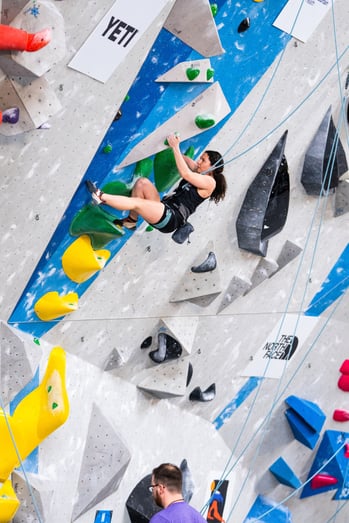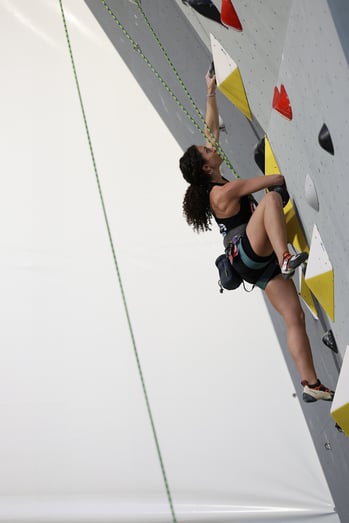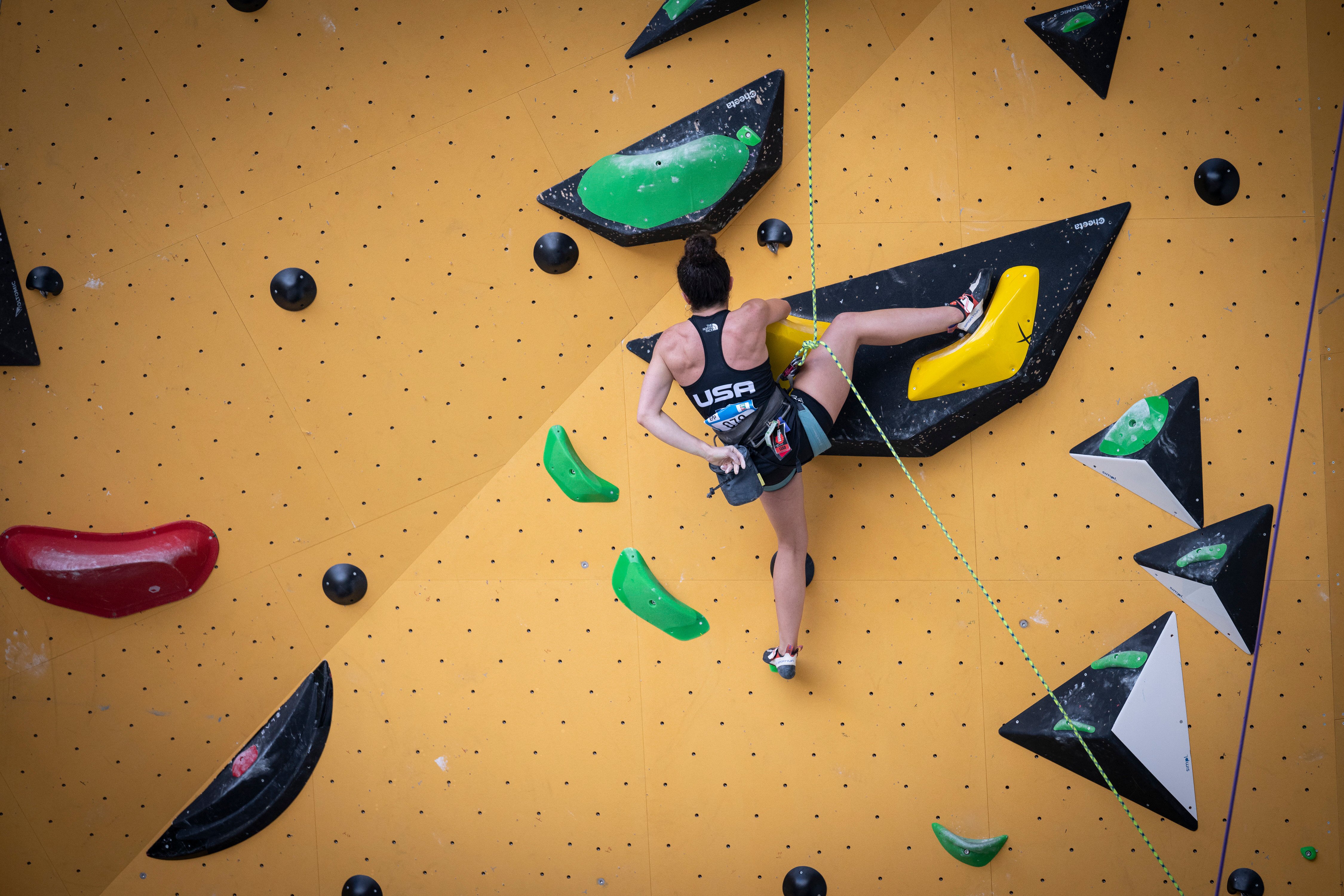From Gym to Global Competition: Isabel’s Paraclimbing Story
Climbing has a way of drawing people in, whether through the thrill of movement, the challenge of the sport, or the community it fosters. For Isabel, it was a chance introduction in 2021 that quickly turned into a passion—and soon after, a competitive pursuit. Just this past March, she won 1st place in her category at Paraclimbing Nationals, a testament to her dedication and hard work. In this Q&A, she shares her journey from first-time climber to national champion, her approach to training and mental preparation, and her aspirations for the future of paraclimbing, including the sport’s Paralympic debut in LA28.
Can you tell us about your background and how you got into climbing?
I started climbing in 2021 when my friend brought me to a gym for the first time. Before climbing, I ran and lifted casually but didn’t have much of a sports background.
What does a paraclimbing competition look like?
At nationals & on the IFSC circuit, paraclimbing competitions are on ropes. Athletes compete against others in the same sport class. (Sport classes designate the type and level of impairment of disability. Athletes go through a classification process before competing to determine what category they’ll compete in.)
In qualifiers, athletes climb 2 routes in flash format (we get 1 attempt and can preview the routes in advance and watch others climb). Finals are an onsight format, so athletes enter isolation before the round begins and get 6 minutes to preview the route before their climb. Scoring is based on how high athletes climb before falling.

When did you realize you wanted to pursue climbing competitively?
There was a paraclimbing world cup hosted in LA in 2021, right after I started climbing. I went as a spectator and knew from then that I wanted to compete.
How do you approach mental training and preparation for competitions?
In the months leading up to a competition, I continuously ask myself if I’ve done as much as I could possibly do in that day/week/month of training to get ready. When I go into a competition, it helps me to know that I’ve put in the work and I’m as ready as I could be given the time I had.
On competition days, I do my best to stay calm and focused. I spend a lot of time by myself & reflecting on my progress. While I’m on the wall, I talk to myself out loud. Depending on the situation, I tell myself whatever I need to calm down, hype myself up, or get through hard moves.
After the competition ends, I look for takeaways and areas of improvement to focus on in training.
What advice would you give young climbers aspiring to compete nationally or internationally?
- Make it a priority to train skills & moves that scare you or that you don’t like. A lot of the time, the training we least want to do is where we have the biggest opportunity for growth.
- It’s not about how strong or talented you are today, it’s about how quickly you learn & improve.
- Learn as much as you can from every competition.
How important is the climbing community to you, and how do you stay connected with it?
The community is one of the reasons I love climbing, but between work and training, it’s hard for me to stay as connected as I’d like to. I do stay connected to the paraclimbing community, though, mainly through competing, training camps & Adaptive Climbers’ Festival, which takes place in the Red River Gorge every year.

How do you think climbing gyms can better engage with and support the local climbing community?
It would be great to see climbing gyms do more programming to get newer climbers outdoors. I’d also love to see more meetups for paraclimbers.
What are your short-term and long-term goals in your climbing career?
I’ll be competing in the IFSC paraclimbing world cup and world championships in the next few months, so my short-term focus is to get as prepared as I can.
In the long term, I am looking forward to the LA28 Paralympics. It will be the first time that paraclimbing is included, and there are still a lot of unknowns as far as format, but my goals are to keep improving & be ready when we know more.
Where do you see the sport of climbing heading in the next decade, and how do you see yourself fitting into that future?
I see a lot of potential for growth. Just since the 2024 Olympics, I’ve seen more athletes advance their careers as pro climbers and more non-climbers become interested in the sport. For paraclimbing in particular, I’ve seen very quick growth and I hope it continues. Paraclimbing nationals this year had the highest athlete turnout ever and a growing number of strong youth competitors. We also have a new head coach for the para national team, so I think we’ll level up in skill & intensity over the next few years. I think we’ll soon see paraclimbers pushing the limits in the sport in ways we haven’t seen before, which is exciting.
I’ll be prioritizing LA28 for the next few years. After that, I’m not sure what’s in store for me. I may keep competing, or I may retire and focus on outdoor climbing or building the community. No matter what, I know I’ll stay involved in one way or another.
Do you have a favorite Movement gym?
Movement Fountain Valley, because it’s closest to me, I wish there were more locations in the LA area!
Thank you, Isabel, for your time! We’re excited to see what the next few years bring for you and your climbing journey.
Looking to connect with the paraclimbing community? Many of our Movement gyms host paraclimbing meetups through organizations like ParaCliffHangers and Paradox Sports. Find a Movement gym near you and join the community!

